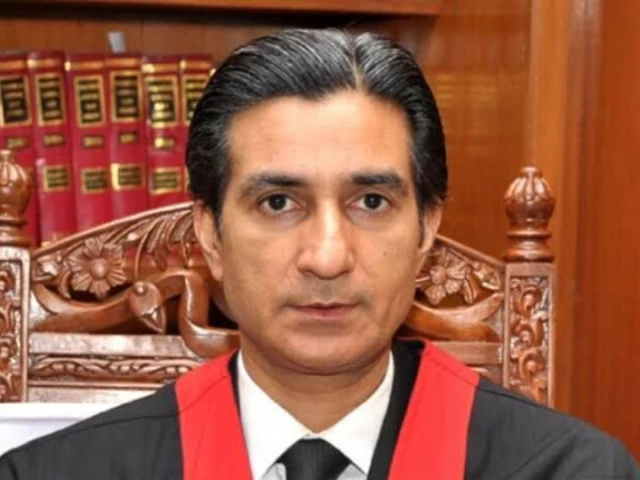Justice Mirza was due to retire in 2028, making his early exit particularly noteworthy
In a significant development for the country’s judicial landscape, Lahore High Court Justice Shams Mehmood Mirza has tendered his resignation, reportedly in protest following the passage of the 27th Constitutional Amendment.
According to reports, Justice Mirza has sent his resignation to the President of Pakistan and has vacated his chamber at the High Court.
His departure marks the first high-profile judicial resignation reportedly linked to the controversial constitutional amendment, which has sparked debate across legal and political circles.
Justice Mirza’s resignation comes amid expectations that he may have been transferred under the new amendment, a possibility that had generated considerable concern within judicial quarters.
Justice Mirza was a member of the LHC’s administrative committee, a role that placed him among the key decision-makers within the High Court.
Read: President accepts resignations of Justices Mansoor Ali Shah, Athar Minallah after 27th Amendment row
He was appointed as an additional judge of the Lahore High Court on March 22, 2014, and later confirmed as a permanent judge.
Justice Mirza was due to retire in 2028, making his early exit particularly noteworthy.
Justice Shams Mahmood Mirza comes from a distinguished judicial family. He is the son of former Supreme Court judge Justice Zia Mahmood Mirza, a respected figure in Pakistan’s judiciary.
Earlier this year, in January, a reference was filed against Justice Mirza in the Supreme Judicial Council (SJC).
His resignation is being viewed as a reflection of growing unease within sections of the judiciary regarding the impact of the 27th Constitutional Amendment—particularly concerning judicial independence and potential transfers of judges.
Read More: Lawyers boycott courts over tweaks
The 27th Constitutional Amendment, signed into law by President Asif Ali Zardari, establishes a Federal Constitutional Court (FCC) with authority over constitutional matters, effectively making the Supreme Court subordinate to it. Critics argue the amendment undermines judicial independence and shifts the balance of power toward the executive.
Senior Supreme Court judges, Justices Mansoor Ali Shah and Athar Minallah, also tendered their resignations following the amendment. Justice Shah described it as a “grave assault” on the Constitution that dismantles the Supreme Court and subjugates the judiciary to executive control.
He said he could no longer uphold his oath in a court “deprived of its constitutional role,” calling resignation the “only honest and effective expression” of his principles.

